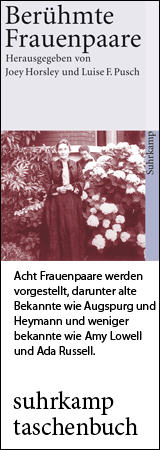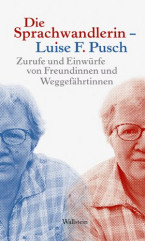
(Susan Rosenblatt [maiden name])
born on January 16, 1933 in New York City, United States
died on December 28, 2004 in New York City, United States
American writer and critic, public intellectual
20th anniversary of death on December 28, 2024
Biography
None have shaped the discourse on photography more than Susan Sontag. Alongside Walter Benjamin and Roland Barthes, she is arguably the most cited photography theorist of the 20th century. Why exactly was she so fascinated by photography? On the one hand, it was because she believed that virtually all of the key aesthetic, moral and political issues could be addressed in photography. On the other hand, photographs were her obsession – even though she neither took pictures herself nor ever even owned a camera. Her interest in images was not just theoretical: she made films, served on the jury at the Venice Film Festival, wrote a play and directed other plays. She also knew how to present herself in front of the camera and was in high demand as a photographic subject; she is considered the most photographed intellectual of the previous century. It seems only logical that in 1988 she also chose to share her life with the most famous photographer in the United States – Annie Leibovitz.
Susan Lee Rosenblatt was born in New York City in 1933. Her parents were Jews of European descent and managed a fur trading company in China. Her father died when she was five years old. Seven years later, her mother married Nathan Sontag, a war veteran and captain in the U.S. Army. Susan and her younger sister Judith took their stepfather's surname, although he did not formally adopt them.
Sontag learned to read at the age of three. By the age of ten, she was reading Homer, Virgil and Dickens and writing her own texts. She graduated from high school at fifteen and attended university at Berkeley before transferring to the University of Chicago, where she met Philip Rieff, a sociology instructor, in 1950. The two married and had a son, David. Sontag described their marriage as a “delirious togetherness of uninterrupted talking.”
She began her graduate studies of philosophy at Harvard University in 1952. She then studied in Oxford and Paris before returning to the United States. She divorced Rieff, and moved with her son to New York City – where she was to launch her literary career. First, however, she took a job as a lecturer in philosophy of religion at Columbia University, while also working as a literary critic for the student newspaper.
In 1964, she published her first essay – “Notes on ‘Camp’.” Cultural products, people or events that actually have an underlying seriousness or are meant seriously are presented in an ironical fashion and are thus trivialized – and conversely, the trivial is glorified and celebrated, thus breaking down the boundaries between ‘high’ and ‘low’ culture. In her portrayal of the social phenomenon of ‘camp’ that had originated in the gay subculture, she achieved nothing less than a revolution in aesthetic thinking and became a “pacesetter of the zeitgeist.” She was able to reinforce this reputation with the eponymous essay published two years later in the collection Against Interpretation and Other Essays. In the novels and numerous other collections of essays that followed she addressed, among other things, aesthetics, morality, the Vietnam War, theater and film, pornography, AIDS, tuberculosis and cancer and – again and again – photography.
In 1975, Sontag was diagnosed with breast cancer while living in Paris. Despite being told by doctors that she had only six months to live, Sontag did not give up hope. She underwent aggressive treatment and was able to beat the cancer.
In 1977, her essay collection On Photography was published. In it, Sontag attacked not only photography, but also mass consumerism: “It would not be wrong to speak of people having a compulsion to photograph: to turn experience itself into a way of seeing. Ultimately, having an experience becomes identical with taking a photograph of it, and participating in a public event comes more and more to be equivalent to looking at it in photographed form.” Images, she said, are always only fragments of the world that provide just one possible interpretation of reality. Yet, as she later wrote in her essay Regarding the Torture of Others in 2004, to live is to be photographed. In Photography: A Little Summa (2003) she stated that photographs provide the most important access to our reality, which in turn means that the camera defines for us what we allow to be considered “real.” Although Sontag was highly critical of photography, photography remained the central theme of her life.
In 1988, she met the American photographer Annie Leibovitz. They entered into a love affair that lasted until Sontag's death. She again fell ill with cancer; first with uterine cancer in 1998, then later with leukemia. Leibovitz portrayed Sontag during these final years frail in her sickbed, naked in the bathtub and after chemotherapy in photographs that were widely criticized. At the end, she photographed Sontag on her deathbed. Sontag herself had become an object of the camera while fighting death. She lost the last battle with cancer on December 28, 2004.
(Text from 2023; translated with DeepL.com; edited by Ramona Fararo, 2024.
Please consult the German version for additional information, pictures, sources, videos, and bibliography.)
Author: Janina Vogel
Quotes
Communism was a utopia only for those who did not experience it. For everyone else, it was hell. I don't like the term utopia either, we'd better talk about idealism. The total victory of capitalism has many alarming consequences, and one of them is the destruction of every kind of idealism. Capitalism is an ideology of selfishness and false individualism, eating away at the human sense of belonging together and provoking irrational counterreactions – fanatical nationalism in Serbia, for example, or the jihad against modernity in Muslim countries. (Susan Sonntag in an interview, found here)
AIDS forces people to realize that sex carries within it, as its cruelest consequence, suicide or murder. (Susan Sontag in “AIDS and Its Metaphors”, 1989)
Of her relationship with Susan Sontag, Annie Leibovitz said: “Words like 'companion' and 'partner' were not in our vocabulary. We were two people who helped each other through our lives. The closest word is still 'friend'.” (in an interview with the Guardian, found here) She also said: “Call us 'lovers'. I like 'lovers.' You know, 'lovers' sounds romantic. I mean, I want to be perfectly clear. I love Susan.” (added by Ramona Fararo¸ source: en.wikipedia.org/wiki/Annie_Leibovitz)
If you hold the rights to one or more of the images on this page and object to its/their appearance here, please contact Fembio.



